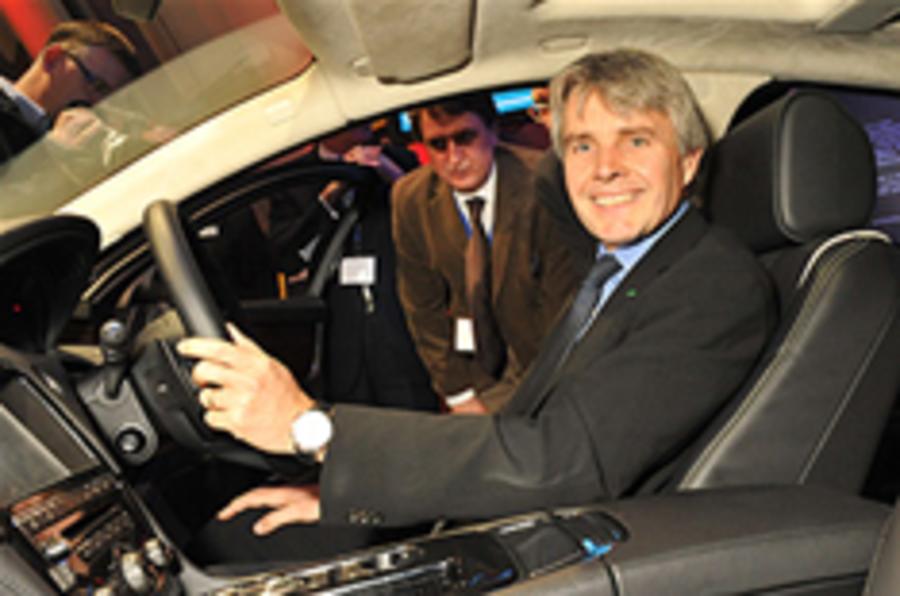Science and innovation minister Lord Drayson claims a successful car industry is essential for the economic prosperity of the UK.
Speaking at the Low Carbon Vehicle event at Millbrook, Drayson said attitudes to low carbon cars had drastically changed since the global financial crisis and large-scale investment is needed for the UK to become a world leader in the technology.
UK gets £11m recharging network
UK 'to lead world on electric cars'
“The switch to low-carbon is our opportunity in the UK to use the tremendous expertise we still have in our automotive science and engineering base to create a new generation of low carbon cars that global consumers are desperate to buy,” said Drayson.
“If we come up with the answers in the UK faster than the competition – and implement them with real drive – we will recapture some of the market share we have lost.
“This is our opportunity and we must grab it. The government is not here to bail out the past, but to create and capture the future. Our priority is to make the UK the world’s leading ultra low carbon car industry.”
Drayson said there was no appetite in the UK for “strange looking and poor performing” cars, whether they were environmentally friendly or not.
“People want performance and efficiency,” he said. “Sexy looking cars that go like stink and are kind to the environment.
“For this to work, we must present consumers with vehicles that have a wow factor, not just underpowered city cars whose handling leaves many people cold.”
Drayson also dismissed “cynical manipulation” of emissions regulations by manufactures in rebranding low emission city cars alongside more high-powered luxury cars.





Join the debate
Add your comment
Re: Car industry 'crucial to UK'
I just wonder when they will be building all the extra power stations to provide the power for all these lovely new electric cars...power companies are already threatening rolling blackouts at current levels of provision/consumption according to the newspapers.
This announcement sounds just like more of the same old waffle rather than real action. The £11million charging network will provide a limited service only to certain large cities.
For electric cars to be a success wide-ranging investment in infrastructure is required upfront, not after some unspecified critical mass of cars are produced - a purely electric car without ready access to power is utterly pointless. Lord Drayson's insinuation that this is "like the days of the Model T" is just tosh - by the time of the T drugstores sold fuel in cans, the insinuation that there was no regular means of obtaining commercial fuel when the cars went on sale is simply idiotic. Which 1900s factory workers would have spent their hard-earned bucks on a mass-market car that they couldn't fuel? Presumably the equivalent of today's buyers who would buy an all-electric car knowing that they couldn't recharge at work, at an out of town shopping centre or parked in the street outside their second floor flat.
Don't get me wrong, I would really love to see electric cars being a success but it will need serious investment top-to-bottom, not hot air speeches simply passing the buck back onto the car industry urging them to produce "sexier" electric vehicles.
Close-to-production vehicles such as Gordon Murray's T25 should be being lauded/assisted by the government now, not some some far-off electric utopia which they are not really prepared to stump up the cash to realize...
Re: Car industry 'crucial to UK'
Volt? Or are you thinking of overhead cables, Trolleybus style?
Re: Car industry 'crucial to UK'
Electric cars will have to have a much longer range before the public start buy them. At least 400 miles on a charge and plenty of charging stations to make them viable for the average family man. At the moment they are only good for town use and the odd longish trip, about 100 miles top. Batteries would need to be a standard fit for all models and filling stations stocking a decent range of spare charged batteries to prevent waiting for cars to be recharged. If designers could come up with the technology for electric cars to recharge while driven, that would entice more drivers to buy. Until then, I'm sticking to diesol or petrol for power